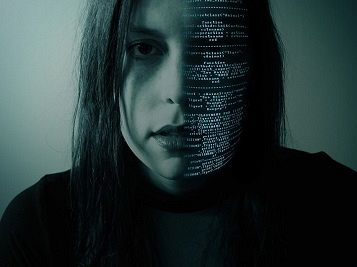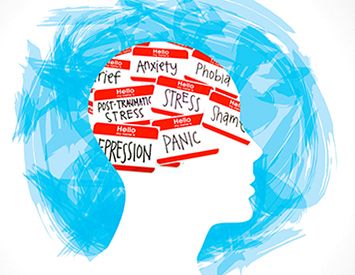Digital media is contributing to the unrealistic expectations of those seeking relationships online, writes Emily Wolter.
TODAY, WE HAVE the ability to connect with virtually anyone at any time at our fingertips. So, we shouldn’t be that lonely, right? Wrong.
With the increased exposure of our personal lives through digital media, the accessibility of dating apps, rampant and important fights against the very inequalities we once accepted and the need to surround ourselves with love and support at a deeper level following the implications of COVID-19, we find ourselves in a world that has high expectations from those we connect with.
Looking towards 2023, we have the tools and the means to achieve that. Plus, there’s the argument we’re ringing in another sexual revolution, which is seeing us push the boundaries around human sexuality, human rights and equality.
Yet, statistics show us we’re incredibly lonely and our mental health is struggling.
Let’s take the ages of 18-34 into account for the sake of understanding the true landscape of mental health amongst a group of people who may be dating and/or seeking partnerships. This data reflects results from an August 2021 survey.
For those in the age range of 18-24:
- over 14% of respondents reported they were lonely ‘most or all of the time’ (5-7 days per week); and
- almost 16% said they were lonely ‘occasionally or a moderate amount of time’ (3-4 days per week).
For those in the age range of 25-34:
- over 8% of respondents reported they were lonely ‘most or all of the time’ (5-7 days per week); and
- almost 15% said they were lonely ‘occasionally or a moderate amount of time’ (3-4 days per week).
How we’re seeking out relationships in 2022
Sure, you know people who are dating are most likely on “the apps” (that means dating applications for those of you who might be out of the game). In fact, over 3 million people were using dating apps in 2021, most of who fall between the ages of 25 and 34.
Those are for hook-ups, right? Wrong.
Only 10% of men and 7% of women reported they were interested in short flings and/or one-night stands, according to Relationships Australia. The reality is, we’re seeking deep connection now more than ever and many people are feeling this desire more strongly after the release of some of the harsh COVID-19 restrictions in Australia.
A few things are clear and backed by evidence:
- we’ve never been so connected in our lives through the means of social media and digital communication;
- young people are lonelier than ever before; and
- the strongest predictor of one’s longevity is the strength of their relationships.
Add the unrealistic perceptions and, many times, blunt conversations and fear of cancel culture we hold in the palms of our hands and experience every day via social media and dating apps, and what we have is a recipe for an idealised, sometimes obsessive society of people who are simply wanting to build connections.
So, where are our heads at?
As a sexologist, I’d call it adopting a “maximiser” mindset. This is a headspace we enter when we constantly reach for something we don’t have. We might look at other people, jobs, countries, corporations and relationships and evangelise what we don’t have, all in an effort to get the “best” of all that’s on offer.
Picture this: you’re about to go on a date with someone you met from an app. You chat for weeks, the banter is good and you meet up for a date. Great. The date goes well.
You follow up with a “had a great night”-type text. Silence. They let you know in the next couple of days the date went well, but they’re “not emotionally available right now”.
You move along and tell yourself it’s fine as you have eight other people messaging you who would be happy to go out with you.
That night, you return home from a day of work where you’ve been connected to the digital world all day, swiping through stories, news articles, Instagram posts and pings from your dating apps. You make a cup of tea before bed and get back to chatting with the eight other people drip feeding you bits about them over texts and GIFs. And very commonly, an in-person date isn’t mentioned for days, maybe weeks.
It’s true, many times in the dating world, the fantasy is more satisfying than the reality of what true relationships take — hard work, effort, communication, respect, realism, disappointment, happiness, compromise and an ongoing commitment.
Online relationships: are they just a fantasy world?
There are solid arguments for the value of online relationships. And indeed, in studies analysing the importance of such connections, there is tremendous strength in keeping certain relationships online only.
Adolescents who build online relationships, for example, are more likely to confide in online friends around topics such as mental health. Others feel more connected to their community and family through online chats.
And at the same time, we know social media is correlated to our mental health crisis, affecting rates of depression and anxiety at an overwhelming rate.
I revert to the comment on the strength of our relationships being the number one predictor of happiness and longevity. Now, take the population of people currently dating in the digital world. The reality is, most are doing so to find a partner or partners to form long-term, strong bonds with, both emotionally and sexually. Even if they may not “take dating seriously,” humans are made to not only want but need strong connections.
The online dating rat race
The pace at which those dating must run to keep up with the many messages they receive each day combined with the maximiser mindset and difficulty in shedding the layer of anxiety and/or unrealistic expectations required to actually meet in person is enough in and of itself to tire someone out.
And still, we continue to run the fast-paced race to get to what we see around us — perceived happiness, connection, family, joy and sexual satisfaction.
So, we message, we post, we ping, we work, we scroll, we swipe, we date and many times, we go home alone feeling an emptiness that can only be filled by strong bonds. We wonder why we can’t seem to fill a void in ourselves when we are “trying”.
But are we trying in the right ways?
Are we being realistic in our wants and needs?
Do we realise the importance of genuine in-person connection and physical touch?
What’s the resolution?
In a world where we have widely adopted a maximiser mindset and are accustomed to getting what we want quickly, we are struggling — mentally, physically and interpersonally.
This is the recipe for being more connected, yet more lonely, than ever before.
Perhaps the key for those dating goes something like this: Less scrolling and pinging, more in-person dates and a more practical mindset that understands the grass truly is not always greener.
Seeking out and holding space for depth in our relationships may see us using the digital world to bridge time between the in-person contact we desperately need.
Emily Wolter is a sexologist and podcast host. She holds a Master of Research (Education), focusing on intersex issues in sexuality education.
 This work is licensed under a Creative Commons Attribution-NonCommercial-NoDerivs 3.0 Australia License
This work is licensed under a Creative Commons Attribution-NonCommercial-NoDerivs 3.0 Australia License
Support independent journalism Subscribe to IA.















